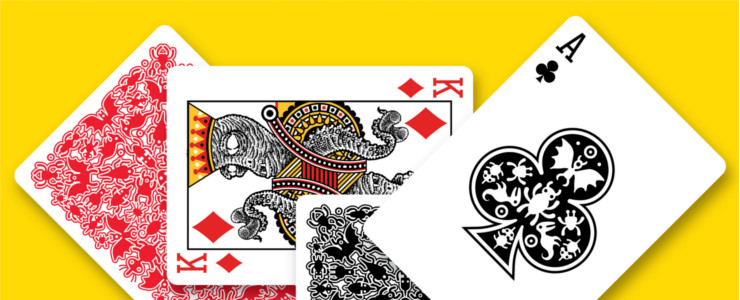1710 – A Tax on Playing Cards
A playing card is a piece of specially prepared heavy paper, plastic-coated paper, cotton-paper blend, or thin plastic, marked with distinguishing motifs and used as one of a set for playing card games. Playing cards are typically palm-sized for convenient handling and were first invented in China during the Tang dynasty in 900 AD.
Although playing cards have many varieties and deck sizes, the 52 card French deck is the most popular. This deck includes 13 ranks of each suit with face cards. Each suit includes an Ace, depicting a single symbol of its suit, a King, Queen, and Jack, each depicted with a symbol of their suit; and ranks two through ten, with each card depicting that number of pips of its suit.
Although playing cards have been taxed since 1588, the English Government dramatically raised taxes on playing cards in 1710.
The tax was twelve times the price of the cheapest cards produced or one-and-a-half times that of the best. The basic duty was always exacted on the wrappings of the pack, but a hand stamp was put on the ace of spades to show that duty had been paid even after the wrapper had been torn off and discarded. Initially, the card manufacturers were liable to pay the tax and every maker of playing cards had to have a mark of his own inrolled to indicate recognition of his name.
The excessive playing cards tax led to widespread forgeries to avoid paying the tax. Although it was a capital offence, some manufacturers forged their own ace of spades with the tax stamp. The tax was in operation for 250 years and only removed in 1960.
"You’d be stupid not to try to cut your tax bill and those that don’t are stupid in business"
- Bono: U2





